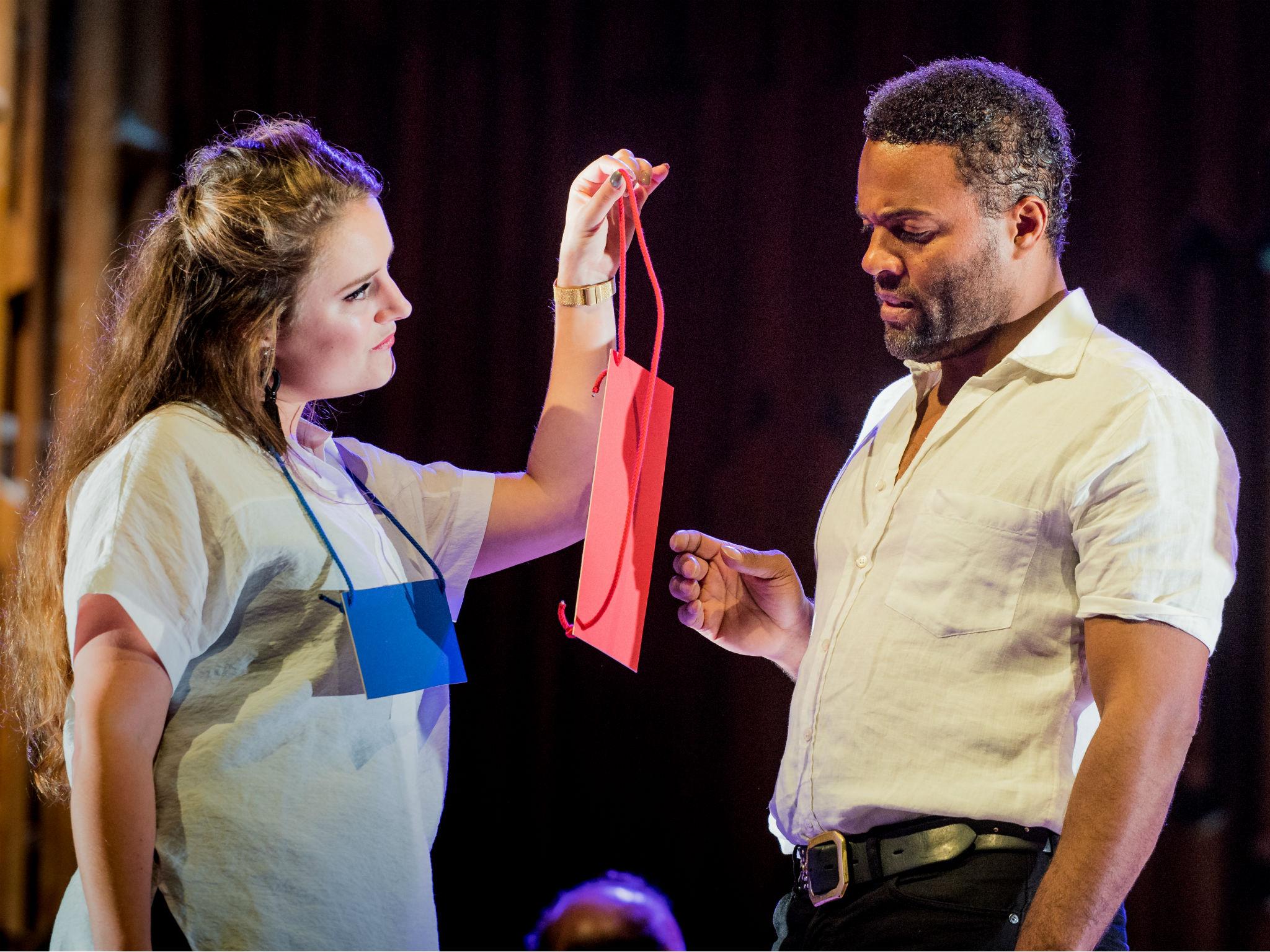King Arthur, Barbican, London, review: Thought-provoking relevance is sketchy
Daisy Evans' contemporary version of Purcell's semi-opera 'King Arthur' explores British identity through Brexit

Your support helps us to tell the story
From reproductive rights to climate change to Big Tech, The Independent is on the ground when the story is developing. Whether it's investigating the financials of Elon Musk's pro-Trump PAC or producing our latest documentary, 'The A Word', which shines a light on the American women fighting for reproductive rights, we know how important it is to parse out the facts from the messaging.
At such a critical moment in US history, we need reporters on the ground. Your donation allows us to keep sending journalists to speak to both sides of the story.
The Independent is trusted by Americans across the entire political spectrum. And unlike many other quality news outlets, we choose not to lock Americans out of our reporting and analysis with paywalls. We believe quality journalism should be available to everyone, paid for by those who can afford it.
Your support makes all the difference.What to do with Purcell’s semi-opera King Arthur first seen in 1691? It contains some of the composer’s loveliest music, exquisite airs and symphonies, “Fairest isle” and the famous “Freezing” aria, but with Dryden’s lengthy accompanying play takes some five hours to perform. Almost everyone now jettisons Dryden’s contribution because the musical interjections stand apart from the story. The problem then becomes how to concoct a plausible narrative from the remaining mishmash of interpolations.
Director Daisy Evans, who last year devised a playful reimagining of Purcell’s Fairy Queen with the Academy of Ancient Music around the conceit of staging a play, this time takes her cue from King Arthur ’s subtitle: “The British Worthy”, and uses it to explore British identity through the achingly topical prism of Brexit. Thus Purcell’s numbers are reordered around readings taken from, among others, Shelley, Blake, Shakespeare and Eliot, ably delivered by actor Ray Fearon, threaded through vignettes entitled things like “Leave and Remain”, “Idea and Reality", "Hope and Despair ", ending fatally with "The Barbican – today". Sterling work as ever from bass-baritone Ashley Riches, Charles Daniels’s pleasingly strong tenor, Reginald Mobley countertenor and Louise Alder’s delightful soprano, with Richard Egarr flourishing at the harpsichord.
It was enthusiastic, earnest, and shone lights in our faces to make sure we got that it was reflecting us, but thought-provoking relevance is rarely achieved by joining dots with a wax crayon.
Join our commenting forum
Join thought-provoking conversations, follow other Independent readers and see their replies
Comments